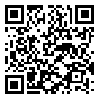Volume 15, Issue 3 (June 2017)
Nursing and Midwifery Journal 2017, 15(3): 208-217 |
Back to browse issues page
1- MSc in Medical Surgical Nursing, School of Nursing and Midwifery, Urmia University of Medical Sciences, Urmia, Iran
2- MSc in Nursing, School of Nursing and Midwifery, Urmia University of Medical Sciences, Urmia, Iran (Corresponding Author) , alirezarahmani2003@yahoo.com
3- MSc in Critical Care Nursing, School of Nursing and Midwifery, Urmia University of Medical Sciences, Urmia, Iran
4- MSc of Biostatistics, Urmia University of Medical Sciences, Urmia, Iran
2- MSc in Nursing, School of Nursing and Midwifery, Urmia University of Medical Sciences, Urmia, Iran (Corresponding Author) , alirezarahmani2003@yahoo.com
3- MSc in Critical Care Nursing, School of Nursing and Midwifery, Urmia University of Medical Sciences, Urmia, Iran
4- MSc of Biostatistics, Urmia University of Medical Sciences, Urmia, Iran
Abstract: (6274 Views)
Background & Aims: Self-care management is one of the most important determinants in the prognosis of heart failure, which can improve the symptoms of disease, function and reduce mortality in these patients. The aim of this study was to determine the effect of applying follow-up care model on self-care management in heart failure patients admitted to Abbasi Hospital in Miandoab.
Materials & Methods: In this clinical trial study, 80 patients with heart failure hospitalized in cardiac units were randomly divided into two groups of 40 patients (follow-up care model) and control (routine care). In the intervention group, a follow-up care model was implemented for three months from the beginning of April to the end of June 2016 and self-care management rate in heart failure patients in the two groups before and after the appalling of follow-up care model were analyzed. Data collection tools included two parts: Demographic characteristics and specific questionnaire of self-care heart failure index. The data were analyzed by SPSS v. 20, chi-square, independent t, and paired t-test.
Results: The mean score of self-care management before appalling of follow-up care model in intervention group was 35.52 ± 14.69 and in control group 33.00 ± 14.75 that there was no statistically significant difference between the two groups (P-value= 0.451). But after appalling of follow-up care model, the mean of self-care management score in the intervention group (55/38 ± 15/6) was significantly higher than the control group (34/50 ± 24/10), (P
| Rights and permissions | |
 |
This work is licensed under a Creative Commons Attribution-NonCommercial 4.0 International License. |


